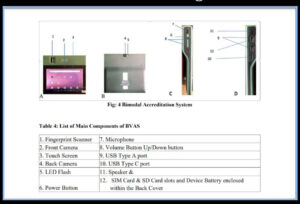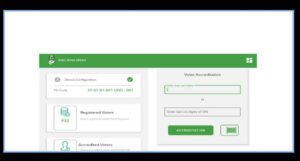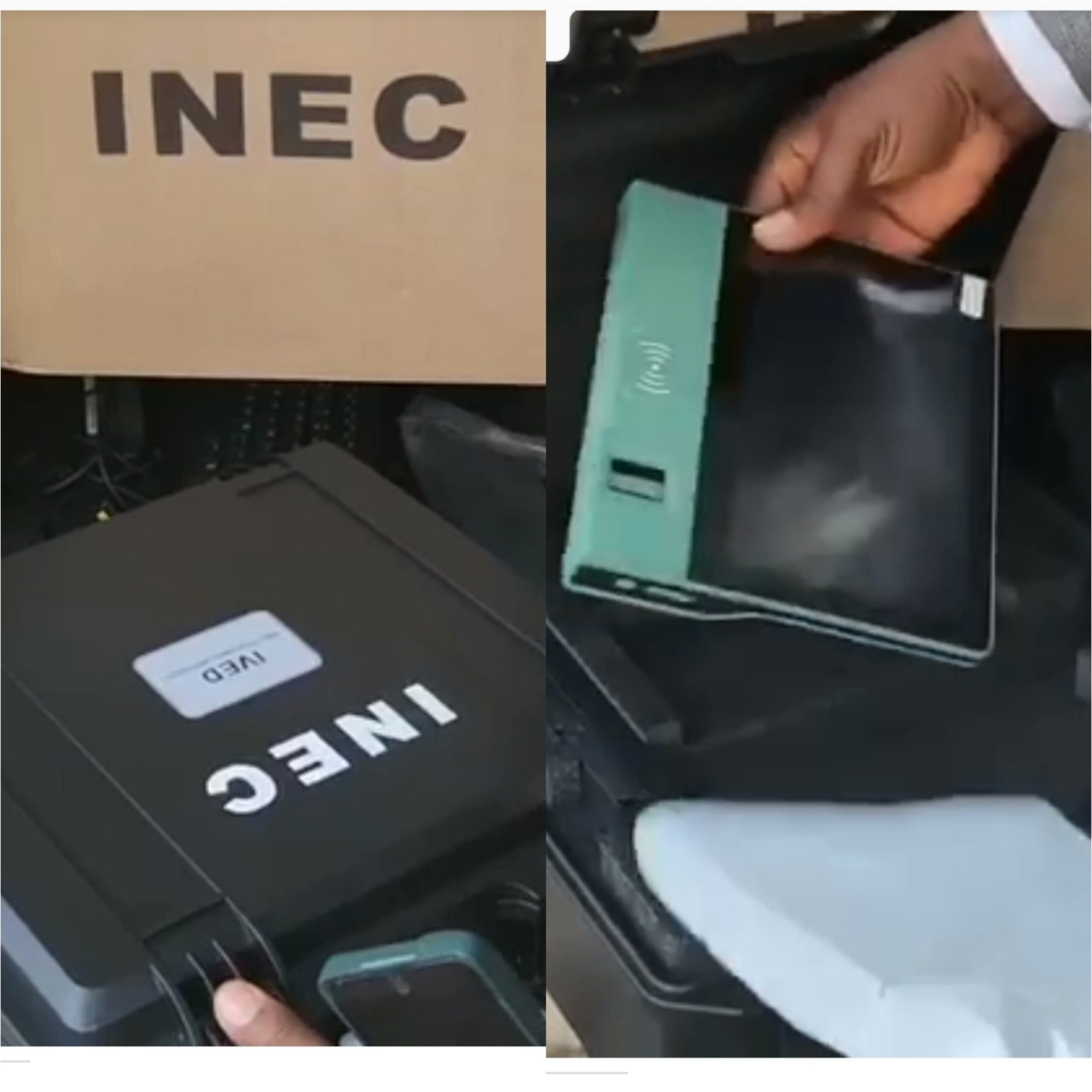The Bimodal Voter Accreditation System (BVAS) is a technological innovation introduced by the Independent National Electoral Commission (INEC) into the Nigerian electoral process in 2021 to enhance the credibility of elections.
The device is strictly for the accreditation of voters, and transmission of scanned copies of election results from polling units. BVAS uses a biometric verification mechanism that incorporates both fingerprint and facial recognition technology to verify the identity of voters during accreditation. By so doing, it verifies the Permanent Voter Cards (PVCs) of voters and authenticates their identities through biometric technology.
Join our WhatsApp ChannelBVAS also has the capacity to capture images of the polling unit result sheet (Form EC8A) and transmit the images to INEC’s Election Result Viewing platform (IReV) in real time. IReV is an online portal where members of the public can access polling units’ results uploaded on the platform as PDF files. BVAS plays a crucial role in eliminating all forms of electoral malpractice, enhancing the transparency and credibility of the electoral process.


Prior to the 2023 general elections, INEC had repeatedly said that given the features of the BVAS, Nigerians were assured of free, fair and, credible elections. However, what happened in the 25th February presidential and National Assembly elections across the country leaves much to be desired in terms of the outcome. The questions in the lips of many are: was it that the device doesn’t have the capability as stated by INEC? or the system was sabotaged?
READ ALSO: Police Arrest Suspected BVAS Syndicates In Abuja
Many observers and commentators both locally and internationally have submitted that the process was not rightly followed and the BVAS machines were not properly deployed to serve the purpose for which they were procured in the first place.
READ ALSO: Conduct Stress Test On BVAS Tech, Says CEO New Horizons
As the Governorship and State Assembly elections take place on Saturday, 18th March, we will look at how this piece of technological device works when rightfully deployed during the polls to ensure a credible outcome.
BVAS Mechanism and Functionality
BVAS works by scanning the barcode/QR code on the PVC/Voter’s register or entering the last six digits of the Voter Identity Number or typing in the last name of the voter by the Assistant Presiding Officer (APO 1) to verify and authenticate voters. The device also functions as the INEC Voter Enrolment Device (IVED) during voter registration, and its usage has eliminated the use of incident forms during accreditation and voting.
BVAS is designed to be tamper-proof, making it impossible for anyone to manipulate the results uploaded to IReV via the device. Prof. Mohammad Kuna, the Special Adviser to the INEC Chairman, Prof. Mahmood Yakubu, had affirmed that the device’s design precludes the editing of photographic results uploaded to IReV, and once the results are sent, they cannot be recalled. The former Resident Electoral Commissioner of INEC in Akwa Ibom State, Mr Mike Igini, had also said that BVAS has returned power to the people by making rigging near impossible for politicians.
The device also has a user-friendly election dashboard with all the key options to begin voter accreditation. The dashboard displays Polling Unit information, the total number of registered voters, and the total number of accredited voters.
BVAS as a Solution to Electoral Irregularities
The irregularities that occur between Polling Units (PUs) and the result collation centres have been a major challenge in Nigeria’s electoral process. These irregularities often involve hijacking, changing, or destroying results. BVAS offers a solution to these challenges by transmitting the results directly from the Polling Units to the INEC portal, thus minimizing human error and delays in the result collation process. This system also improves the accuracy, transparency, and credibility of the result collation process.
Two-Step Verification Process
BVAS operates a two-step verification process, where a voter’s PVC must first be read and authenticated before the person can cast a vote. This process ensures that only the rightful holder of a Permanent Voter Card is able to vote on Election Day. The INEC Chairman, Prof. Mahmood Yakubu, has also confirmed that BVAS works offline and does not rely on the internet to accredit voters on election day.


















Follow Us